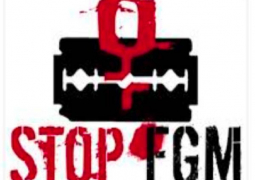Happily the rainy season is here again, and with the expected downpour of rains it would help the production of groundnuts, maize, millet and other grains.
Higher output during the season will directly reduce hunger and bring down the cost of food imports. It will also have wider economic benefits such as stimulating rural incomes to providing raw materials for local industries and export to the developed countries.
Investing in the reduction of hunger is a moral imperative that would help beat down the menace of malnutrition and other social scourges that have direct bearings on food consumption.
We therefore pray for good rains and a rich harvest.
Coming to agricultural production, agriculture has been regarded as the backbone of the Gambian economy in Gambian macro-economic studies.
Undoubtedly, this is for good reason.
Good agricultural production not only feeds families, but also fuels exports and concomitant export earnings necessary for the import of basic commodities. The annual contribution of agriculture to GDP was invariably above the 40% mark.
Despite the fact that agricultural production is declining even if gradually, and it is the combined sector of trade, the sector needs more actions that would help bring it back to where it used to be.
Since the hindrances facing African farmers are numerous, the solutions must be comprehensive, requiring sustained action across many different fronts.
Above all, African governments and their external partners must support the labour of Africa’s millions of poor, small-scale farmers. High economic growth rates cannot be realised unless farm production is significantly reduced.
Africa’s leaders should intensify efforts to find sustainable solutions to hunger and poverty.
Where such solutions exist, the challenge facing African leaders will be to find ways to strengthen them and duplicate their experiences in other localities and countries. Where there are few solutions to build on, new initiatives and programmes will need to be promoted.
The continent can also shield itself against the food crisis through generating its own resources for development by being more cost effective in public financial management, avoiding waste in public expenditure and eliminating corruption, while at the same time create a conducive legal and financial environment for the indigenous private sector to grow.
“Agriculture not only gives riches to a nation, but the only riches she can call her own”
Samuel Johnson
Read Other Articles In Article (Archive)



